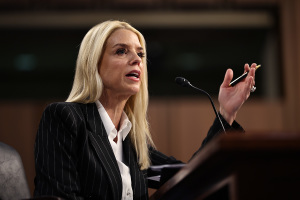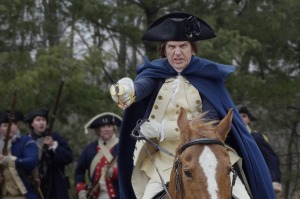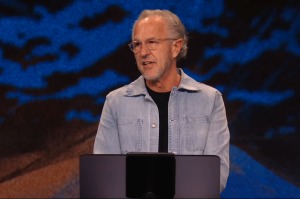Nat'l Day of Prayer Proclamation Upheld in Colorado
A Denver federal court on Thursday upheld a Colorado proclamation recognizing the National Day of Prayer as a lawful expression of an individual's right to practice religion.
Judge R. Michael Mullins dismissed a lawsuit asserting that Gov. Bill Ritter, a Democrat, violated the state constitution by issuing a state proclamation recognizing the National Day of Prayer, which is observed every year on the first Thursday of May.
Colorado Attorney General John Sutters praised the judge's ruling in a statement saying, "I was pleased to see the judge's well reasoned and persuasive order upholding this commonplace practice."
Freedom From Religion Foundation filed the lawsuit in support of the separation of church and state. "I think this judge is very, very wrong," said FFRF co-president Annie Laurie Gaylor. In the lawsuit, the Wisconsin-based skeptic group claimed that Ritter's proclamation violated the Religious Freedom clause of the Colorado Constitution's Bill of Rights.
The clause reads, "No person shall be required to attend or support any ministry or place of worship, religious sect or denomination against his consent. Nor shall any preference be given by law to any religious denomination or mode of worship."
Judge Mullins concluded that the proclamation does not carry the force of law and therefore is not mandating prayer.
The clause also reads, "The free exercise and enjoyment of religious profession and worship, without discrimination, shall forever hereafter be guaranteed; and no person shall be denied any civil or political right, privilege or capacity, on account of his opinions concerning religion."
Mullins said that the proclamation simply asserts an individual's right to practice religion.
The FFRF may appeal the ruling, Gaylor said. She cited a court decision earlier this year where U.S. District Judge Barbara Crabb denounced the National Day of Prayer as an unconstitutional call to religious action. The lawsuit in that case was also filed by FFRF.
The National Day of Prayer's heritage extends back to the formation of United States. In the 1775, the Continental Congress called on the colonies to pray for wisdom in forming the new nation. In 1863, President Abraham Lincoln called for a day of "humiliation, fasting and prayer." In 1952 president Harry Truman declared an annual national day of prayer. The law was amended in the 1988 by President Ronald Reagan to permanently establish the National Day of Prayer on the first Thursday of May.
In May, the Colorado National Day of Prayer committee encouraged prayers for reduced state crime, decreased state divorce rate, a zero suicide rate, decreased abortions and healing from physical, spiritual and emotional oppression.
Shirley Dobson is the chairwoman of the National Day of Prayer task force. Dobson encourages visitors of its website to support the day of prayer. "We have lost many of our freedoms in America because we have been asleep. I feel if we do not become involved and support the annual National Day of Prayer, we could end up forfeiting this freedom too."





























